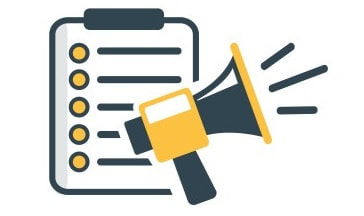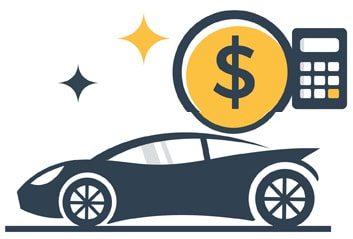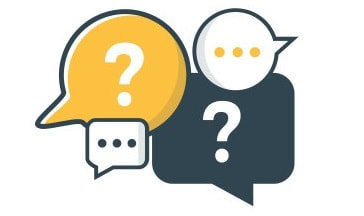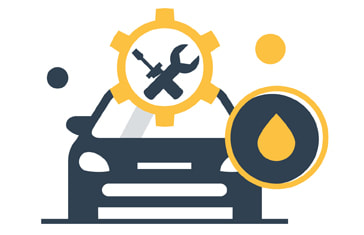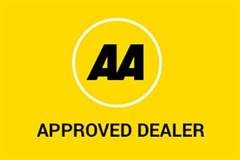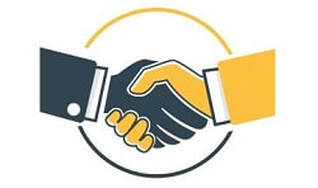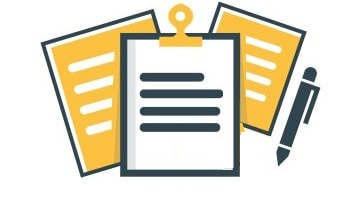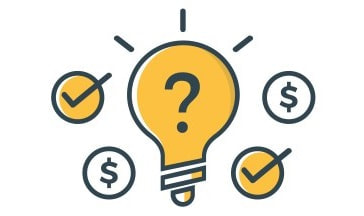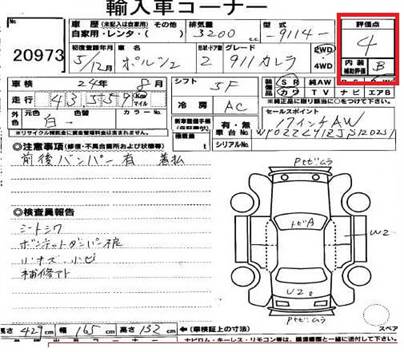The Ultimate Guide to Buying a Used Car in New Zealand
Buy a Used Car with confidence - avoid the pitfalls of private sales & dealerships
Updated 14 April 2024
Summary:
- Buying a car is really about what you need, not what you want, so be sure to get a car fit for purpose and work out your budget before you go for test drives and get carried away.
- You can go down the private sale route, or buy from a dealer - you're only protected if you bought your used car from a dealer. A private seller has no responsibility whatsoever.
- There are a lot of pre-purchase checks to do if you decide to buy privately - protecting yourself with thorough checks is the best way to minimise the risk of getting burnt.
- A lot of vehicles in New Zealand are imported from Japan, and you can get assurances by asking for the importation/export sheet which indicates its condition - many buyers don't know about this.
Search with confidence, get the best price and avoid buying a lemon with our no-nonsense guide.
MoneyHub is a big fan of used cars. They’re a smart investment compared to a brand-new showroom car, and at any time there are tens of thousands available for sale online. Whether you’re looking for a cheap-to-run city car or your dream wheels, you will be able to find it in the used car market.
However, while a used car may save you a lot when contrasted to a new car, there are a few traps to avoid – dodgy salespeople and lemons are just the start.
Our guide brings together useful tips and checklists to help you buy a used car that is reliable and value for money.
MoneyHub is a big fan of used cars. They’re a smart investment compared to a brand-new showroom car, and at any time there are tens of thousands available for sale online. Whether you’re looking for a cheap-to-run city car or your dream wheels, you will be able to find it in the used car market.
However, while a used car may save you a lot when contrasted to a new car, there are a few traps to avoid – dodgy salespeople and lemons are just the start.
Our guide brings together useful tips and checklists to help you buy a used car that is reliable and value for money.
Our Guide Covers:
- 8 things to consider when buying a used car
- Buying a car FAQs
- The cheapest cars to run in New Zealand
- Negotiate your used car purchase with confidence
- The 20+ essential (and easy) car checks that protect your investment
- Private sale checklist
- Buying on Trade Me – your rights if something goes wrong
- Japanese Imports - Important things to Know
- CIN (Consumer Information Notice) - What to Know
Get a FREE Car Valuation in Seconds with Two Reliable Tools
- Don't overpay or offer too much. We know getting a reliable car valuation can be problematic. To speed up the process, our car valuation research highlighted two tools that provide car valuations free of charge:
- We suggest trying Trade Me's Value My Car tool first, and then the BestCar tool. Both are free of charge.
- If you still need more data points, we suggest searching Trade Me's motoring section to see current prices from other sellers to get an indication of valuation.
- MotorWeb and CarJam also provide (paid) valuation and vehicle history reports - our CarJam Review and CarJam vs MotorWeb Reports has more detail.
- We continue to be made aware of rip-off car finance sold to everyday New Zealanders at car yards - our car finance comparison has everything you need to know about the cost of borrowing so you're prepared upfront.
- Disclaimer: We have no relationship with Trade Me, BestCar or any other car valuation service provider listed on this guide. We suggest getting a number of car valuations before agreeing to either sell or buy a car - estimates range, and the first car valuation you're given may not be the highest (if you're selling a car) or the lowest (if you're buying a car).
|
Christopher Walsh
MoneyHub Founder |
MoneyHub's Top Car Finance Options - Avoid high interest rates and fees with our trusted lenders.
|
Our Three Trusted and Affordable Car Lenders Committed to Fast Quotes:
8 Things to Consider When Buying a Used Car
How much a used car will cost you will mostly depend on what car you buy, but there are many easy ways to lower the final bill.
One-year-old cars are SO MUCH cheaper than new carsThe easiest way to prove this is with an example Let's take a 2017 Toyota Corolla GX, which lists for around $31,000 new. By the time it's one year old with 10,000-15,000 KMs on the odometer, it costs around $20,000-$22,000, a reduction of 35% in 12 months. This is called depreciation, and while it’s fairly steep in year one, it tails off every year as the car ages. Most Japanese and Korean manufacturers follow this rule. A 2015 and 2014 Toyota Corolla GX can be picked up for around $18,000 and $14,000 respectively, meaning you'll often be able to pay 50% of the new model price for a four-year-old model.
Top Tip
|
A reliable guide to New Zealand’s cheapest (and safest) cars to run is available for freeThe government’s RightCar site has done extensive research, making available free of charge running costs for many models. You can look up 500+ makes and models and get their safety rating and expected fuel cost per year.
Generally, these rules apply to running costs:
|
Car Insurance CostsWhat you pay for car insurance depends on your car and your driving history. If you want to spend as little as possible every year on insurance, a popular vehicle with cheap parts will be less expensive to insure than buying a luxury 4X4. Furthermore, a small European car will usually be more expensive to insure than a bigger Japanese car because of costs to repair and parts. Age and size also factor in - a new small car would be more costly to repair than an older wagon or SUV-type vehicle.
Read our car insurance guide for more details. |
Know the BEST TIME to buy a used carHaving decided what car you’re going to buy, it’s time to get to get the best deal. There is a ‘right time’ to buy a car if you’re buying from a dealer. As car salespeople have sales targets to reach and bonuses to aim for, you’re best to aim for the end of the month. Better yet, at the end of the quarter (we recommend mid-March, June, September and December) dealers will want to maximise sales and move cars. To boost sales, dealers will be more obliging when it comes to negotiating the price and freebies. A quiet dealership is even better – if you can visit on a Monday or Tuesday. You can negotiate far better than if it’s a weekend after payday and the car yard is filled with half the city.
This advice only applies to dealers. Private sellers don’t care about the time of the month – they just want the best price. However, you will likely have better chances to negotiate in January when many potential buyers are away for Christmas holidays and Kiwis tend to be less flush with money. |
Follow our checklist and ask yourself, what car do I really need?Buying a car is often more about what you need, not what you want. A petrol eating 4x4 may be great for the occasional weekend adventure, but if you’re commuting for hours every week, it’s going to kill you on petrol.
|
Planning to get rid of your current car? Should you sell it privately or take it to a dealer?If you plan to sell your current car, you have two options – sell it to a dealer or sell it privately. Selling it to a dealer is very easy – just drive it over and agree on a price. You can also trade it in, whereby the amount agreed is knocked off the price of the car you’re buying. Alternatively, you can sell privately – this involves advertising the car, responding to enquiries and agreeing on a price with the buyer.
Option 1 - Selling to a Dealer Selling to a dealer, whether it be a local dealership or “We Buy Any Car” type business will save a lot of time, hassle and negotiation with potential buyers – but it’s unlikely to give you the best price. Remember, the dealership wants to sell your car to someone else as soon as possible for maximum profit so they’re not going to offer you what you can get from a private buyer. If your car is worth less than $1,000, it may be worth using it as a trade-in to avoid days and nights spent with potential buyers. Option 2 - Selling it Privately If you chose to sell privately, be prepared to invest the time knowing you’re more than likely to get a higher price for the car if you advertise and market it right. Recommended options for selling a car:
Remember, listing a car online is the easy part. Making time for all of the interest parties, scheduling test drives, dealing with the sale and answering a whole lot of questions is the hard part. But, the AA confirms that in nearly every case, the amount of money you would receive when trading a car in will be significantly less than what you would receive from a private sale. When is it best to trade in your old car?
|
Understand ALL of the costs of a new carThere are two types of costs involved in buying a car – upfront and ongoing. Upfront is simply the purchase price, ongoing is everything else – from WOFs to insurance to parking fees.
Before you add up the costs of your new car, you’ll need to pick the car you want. Start as you would with any major purchase, and look at reviews:
Upfront Costs
Once you’ve picked a car, the next step is to pay for it. You can either pay for it upfront in cash or take a finance option. Visit our best car finance page for our guide to saving on car financing. Ongoing Costs
There are many ongoing costs with a car, and all fall due at different times. You’ll need to have the money to pay them to keep your car on the road.
|
Work out a budget FIRST before you look at used carsTo make buying a car easier, and to ensure you don't waste anyone's time, we recommend the following course of action:
1. Establish your budget – you need to know how much you can afford and where the money will come from. It’s best to arrange finance in principal (i.e. have it approved) BEFORE you go car hunting. You will waste your time and the seller’s time if you are unrealistic about finance and can’t get the money together before another buyer shows interest. Good deals come and go, so be smart and get the money together so you can snap up the car you want when you’re happy with it. A good deal will go quickly. 2. Stick to your budget - once your funds are in place, stick to the budget but don’t be afraid to target over-budget cars with the aim of negotiating down. For example, if your budget is $7,000 and you are keen on a 2008 Toyota Corolla (a Kiwi favourite, with plenty for sale), you can contact sellers advertising at $7,500 or even $8,000 with the ability to negotiate a better deal. Most sellers list their vehicle 10-15% above what the average for the model is because they think buyers will negotiate and/or they see their car is premium with lower mileage or better condition. Once you have researched the model you want and have an understanding of the market value, you are ready to ready to go hunting. |
Get a FREE Car Valuation in Seconds with Two Reliable Tools
- Don't overpay or offer too much. We know getting a reliable car valuation can be problematic. To speed up the process, our car valuation research highlighted two tools that provide car valuations free of charge:
- We suggest trying Trade Me's Value My Car tool first, and then the BestCar tool. Both are free of charge.
- If you still need more data points, we suggest searching Trade Me's motoring section to see current prices from other sellers to get an indication of valuation.
- MotorWeb and CarJam also provide (paid) valuation and vehicle history reports - our CarJam Review and CarJam vs MotorWeb Reports has more detail.
- We continue to be made aware of rip-off car finance sold to everyday New Zealanders at car yards - our car finance comparison has everything you need to know about the cost of borrowing so you're prepared upfront.
- Disclaimer: We have no relationship with Trade Me, BestCar or any other car valuation service provider listed on this guide. We suggest getting a number of car valuations before agreeing to either sell or buy a car - estimates range, and the first car valuation you're given may not be the highest (if you're selling a car) or the lowest (if you're buying a car).
|
Christopher Walsh
MoneyHub Founder |
MoneyHub's Top Car Finance Options - Avoid high interest rates and fees with our trusted lenders.
|
Our Three Trusted and Affordable Car Lenders Committed to Fast Quotes:
Buying a Used Car Frequently Asked Questions
How do I get the best finance deal?
Read our car finance guide which covers everything you need to know to get the best deal.
What if my new car has a fault?
The single biggest risk of buying a used car is it developing a fault after purchase. You can reduce the risk that this happens by paying to get the right tests and checks done (see our guide below).
Also, some models may be more problematic than others. Google your model + “faults” or “problems” to get some idea of what other owners have experienced. Faults and problems can cost BIG.
Also, some models may be more problematic than others. Google your model + “faults” or “problems” to get some idea of what other owners have experienced. Faults and problems can cost BIG.
How do I get a late model car and avoid paying too much?
If you want a car for half the price of showroom new, search for models from 2010-2012 (6-8 years old). Such models may have 50,000+ kms on the odometer, but you effectively save big while getting a recent model.
Key Point – when you buy a car, you are buying a depreciating asset. This means that unlike a house or an antique, the value of your car goes down every year. This is important to remember if you plan to sell your car a couple of years later – you won’t get what you paid for it.
Key Point – when you buy a car, you are buying a depreciating asset. This means that unlike a house or an antique, the value of your car goes down every year. This is important to remember if you plan to sell your car a couple of years later – you won’t get what you paid for it.
Which cars are the safest to drive?
Rightcar lists vehicle driver protection safety ratings for a variety of categories such as “Large Car”, “Medium Car”, “Small Car” and “Light Car” among others. Vehicles identified as a 'Safer Pick' provide excellent protection to their own driver, cause less serious injury to other drivers and have a lower risk of being involved in a crash.
Manual or automatic – what should I pick?
This choice really comes down to how you like to drive. Do you like to drive or to ride? As most models have the option of manual or automatic, we’ve listed some pros and cons for each:
Manual
Automatic
Manual
- More engagement with driving and cheaper to buy.
- But, stop-starting gets tiring and can be harder to resell.
Automatic
- Smoother ride with no gear changing and often more fuel efficient.
- But, a reduced driving “experience”.
- More expensive to fix.
If I buy from a dealer, do I need an extended warranty?
This is up to you - if your car needed a $1,000 repair next week, could you afford it? If it would be a struggle, paying upfront for an extended warranty gives you a form of insurance against the unpredictable.
What do I do about insurance?
To protect the value of your investment, arrange car insurance BEFORE for the day you take possession. Best of all, if the sale falls through, you can cancel the insurance and get a refund. Check out the best deals in our car insurance guide. Having car insurance means that if someone drives into you on the way home, you’re covered!
Should I buy insurance from a dealer?
If your car is from a dealer, ask them if any insurances are included. You may get a week or two with the car, but check either way and arrange it if you don’t. Chances are you will find a better deal in the market - check our car insurance guide for tips.
Buying a Used Car – Car Condition and Test Drive Essentials
When it comes to a used car, appearances are 5% and everything else is 95%. We cover both the car condition and how it drives to make sure you don't end up with a lemon.
First Checklist – Car Condition
- Check the car’s mileage – allow for 15,000km per year, so if a five-year-old car has only done 40,000km, ask why and also ask for its last service report which will state the mileage.
- Ask if the car has been involved in any previous accidents.
- Assess the overall condition – carefully look around the car for dents, scratches, and dings. Don’t glance, look thoroughly and take photos if you want to remind yourself of any issues.
- Check repairs done on the car. Look for shonky work done such as gaps in body panels and poor quality paint touch-ups. Check the oil. Lift out the stick to confirm it's at the right level.
- Look at the engine and watch out for water leaks - be sure to check for leaks by looking under the car as well.
- Check all of the lights.
- Test the radio, SATNAV, aircon, windows and all other electrics.
- Do you feel the car is safe? You'll know fairly quickly if you're comfortable in the car - if in doubt, don't go any further.
- Check tyre tread and inflation.
Second Checklist – Test Driving
It’s expected that you will test drive a car before offering to buy it, so treat the time you have with it as a test and not a scenic drive.
Make sure you follow our 14 things to check.
Make sure you follow our 14 things to check.
- Are you comfortable? Can you adjust the seat to rise, slide backwards, forwards and recline? Can you adjust the position of the steering wheel? Do you have a full view of the mirrors? Can you put your feet on the pedals, and can you comfortably reach the gear stick and handbrake?
- Check the passenger seats. Make sure the front seat can adjust like the driver’s seat. Check the backseats and ensure the seatbelts adjust and click – belt yourself into each one. Is the passenger area comfortable for long distances?
- Pour a little of water over the windshield. Make sure it doesn’t leak.
- Is there space for big items you may need - golf clubs, sports equipment, etc.? is it easy to fit them in and get them out?
- Can you fit in a child car seat?
- Perform an emergency stop on an empty road to check the strength of the brakes.
- Find a hill or road with a gradient and perform a hill start to check that the handbrake releases and the clutch works properly.
- Perform a parallel park to see how easy it is to park – this is a major factor of hassle later on if you struggle to get control of parking it.
- Is the car balanced? Drive straight and take your hands off the wheel – does it veer to the left or right, or does it feel balanced?
- Are the doors, boot and bonnet easy to open? Check all passenger doors to make sure you can open them from inside and outside.
- Is the car smooth, i.e. does it accelerate smoothly without judders or rattling?
- How powerful is the engine? Can you get to a comfortable speed in a time that feels safe? Do you need to change gears more than usual?
- Does the engine noise sound normal? Is it rattling, sounding strained?
- Check the shock absorbers/suspension. How well does it absorb bumps, potholes and handle corners?
Get a FREE Car Valuation in Seconds with Two Reliable Tools
- Don't overpay or offer too much. We know getting a reliable car valuation can be problematic. To speed up the process, our car valuation research highlighted two tools that provide car valuations free of charge:
- We suggest trying Trade Me's Value My Car tool first, and then the BestCar tool. Both are free of charge.
- If you still need more data points, we suggest searching Trade Me's motoring section to see current prices from other sellers to get an indication of valuation.
- MotorWeb and CarJam also provide (paid) valuation and vehicle history reports - our CarJam Review and CarJam vs MotorWeb Reports has more detail.
- We continue to be made aware of rip-off car finance sold to everyday New Zealanders at car yards - our car finance comparison has everything you need to know about the cost of borrowing so you're prepared upfront.
- Disclaimer: We have no relationship with Trade Me, BestCar or any other car valuation service provider listed on this guide. We suggest getting a number of car valuations before agreeing to either sell or buy a car - estimates range, and the first car valuation you're given may not be the highest (if you're selling a car) or the lowest (if you're buying a car).
Buying from a Dealer - What you Need to Know
Buying a used car from a dealer gives you protection, but you will pay more compared to a private seller
Dealers will check cars over before selling them, and often offer warranties for used cars. A private seller will offer no such warranty. If something goes wrong and you’ve bought it from a dealer, you'll have options such as a refund, repair or replacement to fixed the problem. A private seller won't be able to help you, and you'll have to deal with the problem on your own.
My dealer is AA Appraised. Does this mean I don’t need to do an inspection on the car?
Many car dealers will advertise themselves as “AA Appraised”. This means that the appraisal is a "dealer-only" inspection – it’s a small, basic cosmetic check to let the dealer know the condition of the vehicle before putting it for sale in the yard. This “AA Appraisal” is not enough, in most circumstances, to provide any confidence in the condition of the car. Furthermore, the check performed does not give any indication of the vehicle’s components. As such, we recommend getting a pre-purchase inspection. The only information validated will be the odometer.
How do I find a dealer that’s not dodgy?
You can check that the trader, individual or company is registered at the Motor Vehicles Trading Registrar. Under the Motor Vehicle Sales Act (MVSA) all car dealers must be registered. Beyond this, Google is a big help – online reviews and the Facebook page of the dealer will make you aware of any red flags (i.e. angry customers complaining). We also recommend asking friends and family for recommendations – buying a new car is an exciting but uncertain time and people will be willing to share their own experiences of dealers.
What questions should I ask a dealer?
We Kiwis get anxious when we don’t know what to ask, but don’t want to miss anything either. A car dealer is (probably) not out to cheat you nor will it force you to buy a lemon. But, to be sure, it helps to know what to ask and to trust your instincts if you feel the vehicle and/or dealer isn’t for you. To give you the most confidence, we’ve created a list of questions to ask.
Questions to ask:
Remember: If you feel something isn’t right, you’re being pushed into buying or the situation feels one-sided, you are totally free to walk away. You know yourself the best, so trust your instincts. There will be other cars and dealers to visit next.
Questions to ask:
- Can I see the last WOF report?
- Who was the previous owner?
- What is the service history?
- Are there any faults with the car, i.e. features or parts not working (radio, aircon etc.)
- Has it been involved in any crashes or accidents?
- What is included in the price?
- How many KMs has it done, and can you prove it’s real?
- What warranty is included, and what does it cover?
Remember: If you feel something isn’t right, you’re being pushed into buying or the situation feels one-sided, you are totally free to walk away. You know yourself the best, so trust your instincts. There will be other cars and dealers to visit next.
Make sure you bargain
Kiwis tend to shy away from haggling, but as we negotiate everything else important like housing and salaries, negotiating a used car shouldn’t be off limits. Bargaining applies to both dealerships and private sales. Our rules are as followed:
- Never pay the asking price – there is no need, and a seller wouldn’t expect it.
- Go over the car like a scene from CSI – find dents, marks and anything else that is visible and make a note of it. Put those in a list and use it to ask for a discount.
- Prepare a list of similar or same model cars being advertised - arm yourself with the cheapest web prices and make dealers compete for your custom - What Car? lists a handy 'target' price for all brand new cars. Print this out and stick to it during negotiations.
- Bring a verified AA report – you can pay $20 for a valuation report, which lists out the value for a vehicle buyer, or seller. The report includes a trade-in price (value based on the car's condition), private sale price (if selling privately, the value based on the car's condition), a safety rating based crash test results, information about the car's petrol consumption and emissions information, among other things.
- Push for freebies - if you’re buying from a dealership, get them to offer a freebie, be it floor mats or two free services.
- Push for further discounts - if the car is already discounted, you have more ground for further discounts. Start with 25% lower and move from there.
- Talk less, not more - Kiwis panic and talk too much in the negotiating stage to avoid awkward silences. When you make an offer, wait for them to make a counter, and then stay silent until they lower it. Don’t talk, just state numbers.
- Don’t be afraid to walk away – if they follow or phone you later, you’re likely to get a lower price.
- Be friendly – don’t be rude. Keep a sense of humour and have some style and you’ll get a discount.
- Don’t sign on the day – you’ll want to think about it, and you may well get a further discount if a dealership wants its sold.
Buying a Car Privately – What to Do
Buying a car privately is a lot riskier than buying from a dealer. Firstly, you buy the car as it is, not with any expectation that it will do another 100,000km or even get you home. The Consumer Guarantees Act and Fair Trading Act don’t apply to a private purchase. It really is a situation of “buyer beware”. If the seller misrepresented the car you could take them to the Disputes Tribunal, but things can get ugly and it’s a slog and a lot of work.
To have the best experience of buying a car privately, we’ve put together a checklist to reduce the risk of you buying a bomb. First of all, we encourage every buyer to stay local in their search. By this we mean don’t commit to viewing a car in Tauranga or Hamilton if you live in Auckland. A lot can change, sellers change their mind or message “sorry, sold” as you pull up at their house. Searching locally is easier for everyone involved.
To have the best experience of buying a car privately, we’ve put together a checklist to reduce the risk of you buying a bomb. First of all, we encourage every buyer to stay local in their search. By this we mean don’t commit to viewing a car in Tauranga or Hamilton if you live in Auckland. A lot can change, sellers change their mind or message “sorry, sold” as you pull up at their house. Searching locally is easier for everyone involved.
What are my rights for a private sale?
Private sales differ from dealer sales in that you have very little protection under New Zealand law - “let the buyer beware” is the best it gets and forces buyers to thoroughly check the car out before making an offer. By buying privately, you can forget about a warranty, dealer finance or freebies. But you may find it’s the cheapest way to get new wheels.
Private Sale Checklist
Pre Inspection Essentials
MoneyHub reader Steve writes: "I read about a late model VW going for a good price, but there weren’t many photos. I phoned up the seller, and he was vague but made an appointment to look at it anyway. It really was a bomb, and I only got through a few of my checklist points before calling it a day. The seller was a Catfish, listing a dodgy car with no hope of selling to anyone informed”. |
Know what CAN go wrong, so you can ensure it doesn'tThere are several risks with buying a car privately. We outline them:
|
Get the car's complete history for a small feeA car history check will tell you if the vehicle has money owing, an inconsistent odometer, has been reported stolen and offers a number of other useful information points. It will also tell you the current legal owner so you can be certain you are dealing with the correct person. Car history checks can be bought instantly online.
Recommended: carjam.co.nz is arguably the leader in car information, selling their detailed CarJam report for around $15 – you can see a sample report here. This comprehensive report will let you know everything about the car like accidents and ownership changes, WOF issues, money owed and a market valuation. Keep in mind the report isn’t a vehicle inspection – we outline these separate reports further below. Our CarJam Review and CarJam vs MotorWeb Reports guides have more detail. Stolen car? If you only want to know if it’s stolen, enter the registration on the NZ Police website to check it's status. Money owing? TEXTB4UBUY is a government service that checks if there is money owing on the car. It costs $2.30 per registration number. Get familiar with MR13 forms (used to buy a motor vehicle) - you can complete the MR13 forms at your local PostShop or AA centre. Once you confirm everything is above board and who you are dealing with actually owns the car, you may want to organise a vehicle inspection. |
Test Drive EssentialsWe've listed a few suggested essentials to help you see the car as it is, not how the seller wants it to appear.
Does the owner:
Minor checks:
|
If you like the car after the test drive, consider getting a Pre-Purchase Vehicle InspectionIt’s unlikely you’re a mechanic, so for complete peace of mind, it may be an idea to get the vehicle checked out by the AA or a local mechanic. It’s more expensive than a WOF, but it will protect you from being ripped off.
AA Pre-Purchase Vehicle Inspections The AA offer pre-purchase vehicle inspections that offer a comprehensive 100+ point vehicle check by an experienced mechanic, an overview of any recommended repairs, an indication of any potential WoF issues and clarity around the condition of the car before you buy it. The cost is $149 (members) and $169 (non-members). You will be hard-pressed to find an assessment that is as thorough, and the AA report gives reassurance that you can buy your car with confidence. Alternatively, you can also contact a local mechanic who can perform an inspection. |
Important: When it comes to paying for the car, you're not protected in any way by your method of payment. For example, if you’ve paid for the car by PayPal or a money transfer, neither PayPal nor the bank offers any protection – i.e. you can’t claim your money back if something goes wrong.
What protection does Trade Me offer?
Quick answer: NONE. Car purchases are NOT protected on Trade Me unless the seller is a dealer.
- Trade Me is a popular place to find a car. But don’t think that because it’s listed online you have more rights. Private selling is the same whether you see a car on online or advertised at your corner dairy.
- Despite Trade Me claiming you can take your trader to the Motor Vehicle Disputes Tribunal, unless the seller is a dealer, this tribunal is only for people who have bought a vehicle from a registered trader.
'Paperwork & spares' checklist - the seven things to check
When you buy a used car you’ll be given a bunch of documents, so check you’ve got the right ones before paying up. These include:
Car Repair and Maintenance
If this is your first car, you may wish to purchase some safety supplies, with popular essentials including:
Car Repair and Maintenance
- Spare tyre (in good condition), along with a tyre jack and tyre iron
- Tyre inflator and sealer
- Jumper cables
- Car manual, which should be in the glove compartment already
If this is your first car, you may wish to purchase some safety supplies, with popular essentials including:
- First aid kit
- Flashlight
Other Key Information You Need to Know
Japanese Import? Find out the condition of the car when it left Japan
If you’re buying from a dealership that sells used imported Japanese vehicles, ask for the importation/export sheet. Every car has one and it’s in the same envelope as the spare keys. Inspect it, and you’ll see it’s in Japanese and printed on 1980s paper (with perforated edges). There will be a number rating on the top right. You will want a car that is at least 3.5. The grades are as followed:
- Grade 5: As new condition
- Grade 4.5: Very lightly used condition
- Grade 4: Used condition with only the lightest of blemishes
- Grade 3.5: Good condition with more noticeable blemishes
- Grade 3: Average condition marks and possible light damage
- Grade 2: Poor condition may have accident damage or corrosion
Consumer Information Notice
A dealer is required to attach to every motor vehicle displayed for sale a “consumer information notice” (CIN). There must be a link to the CIN if a trader is selling used cars on the internet. A private seller at a car fair or using a display for sale operation must also display a CIN.
The Commerce Commission outlines all the information that must be disclosed in the CIN, which we outline below:
If you buy the car, you must be given a copy of the CIN.
If you notice that a vehicle is displayed without a CIN, or the information on the CIN is misleading, you can complain to the Commerce Commission. The commission can prosecute for breaches of the Fair Trading Act. If you buy the vehicle and then discover you were misled you may be able to take action yourself under the Fair Trading Act.
The Commerce Commission outlines all the information that must be disclosed in the CIN, which we outline below:
- Price: the CIN must state the total cash price for the motor vehicle including GST and any additional registration and licensing costs required in order to allow the vehicle to be used on the road.
- Security interest: the CIN must show whether there is a security interest registered against the vehicle on the Personal Properties Security Register (PPSR).
- Make and model: the vehicle's make and model must be as recorded on the Motor Vehicle Register.
- Vehicle year: the year must be as recorded on the Motor Vehicle Register. For vehicles registered before 1 January 2007, this means the calendar year when the vehicle was manufactured or the model year stated by the manufacturer or the year when the vehicle was first registered anywhere in the world. For vehicles registered after 1 January 2007 vehicle year means the year it was first registered anywhere in the world.
- Engine capacity: the CIN must state the engine capacity as it is recorded on the Motor Vehicle Register.
- Actual distance vehicle has travelled: the CIN must state the reading on the odometer.
- Radio receiver capability: the CIN must state whether the vehicle has a radio capable of receiving stations located between 88 and 108 Mhz (FM) without the use of a band expander.
- Vehicle identification (VIN) or chassis numbers
- Warrant or certificate of fitness
- State the current warrant of fitness expiry date.
- Vehicle licence expiry date
- Registration plate number
- Year first registered
- Re-registered vehicle
- Operating fuel type
- Road user charges (if applicable)
If you buy the car, you must be given a copy of the CIN.
If you notice that a vehicle is displayed without a CIN, or the information on the CIN is misleading, you can complain to the Commerce Commission. The commission can prosecute for breaches of the Fair Trading Act. If you buy the vehicle and then discover you were misled you may be able to take action yourself under the Fair Trading Act.
Buying a used car - know something we don't?
We work hard to make our MoneyHub guides as complete and informative as possible, but we rely on our readers to share their tips to improve our guides. If you have something you would like to share about buying a used car, please contact our team today - we look forward to hearing from you.
We work hard to make our MoneyHub guides as complete and informative as possible, but we rely on our readers to share their tips to improve our guides. If you have something you would like to share about buying a used car, please contact our team today - we look forward to hearing from you.
Get a FREE Car Valuation in Seconds with Two Reliable Tools
- Don't overpay or offer too much. We know getting a reliable car valuation can be problematic. To speed up the process, our car valuation research highlighted two tools that provide car valuations free of charge:
- We suggest trying Trade Me's Value My Car tool first, and then the BestCar tool. Both are free of charge.
- If you still need more data points, we suggest searching Trade Me's motoring section to see current prices from other sellers to get an indication of valuation.
- MotorWeb and CarJam also provide (paid) valuation and vehicle history reports - our CarJam Review and CarJam vs MotorWeb Reports has more detail.
- We continue to be made aware of rip-off car finance sold to everyday New Zealanders at car yards - our car finance comparison has everything you need to know about the cost of borrowing so you're prepared upfront.
- Disclaimer: We have no relationship with Trade Me, BestCar or any other car valuation service provider listed on this guide. We suggest getting a number of car valuations before agreeing to either sell or buy a car - estimates range, and the first car valuation you're given may not be the highest (if you're selling a car) or the lowest (if you're buying a car).
|
Christopher Walsh
MoneyHub Founder |
MoneyHub's Top Car Finance Options - Avoid high interest rates and fees with our trusted lenders.
|
Our Three Trusted and Affordable Car Lenders Committed to Fast Quotes:
Related guides:
- 20 Ways to Make Driving Cheaper
- Car Finance Comparison
- CarJam Review and CarJam vs MotorWeb Reports
- Car Insurance Comparison
- Car Valuations
- Best Electric Cars
- Parking Tickets
- Selling a Car
- Top Cars that Hold Their Value
- AA Membership Review
- Vehicle Leasing
- Best Car Batteries
- Warrant of Fitness Guide - Auckland, Hamilton, Tauranga, Lower Hutt, Wellington, Christchurch and Dunedin
- Mechanics in Auckland, Hamilton, Tauranga, Lower Hutt, Wellington, Christchurch and Dunedin







